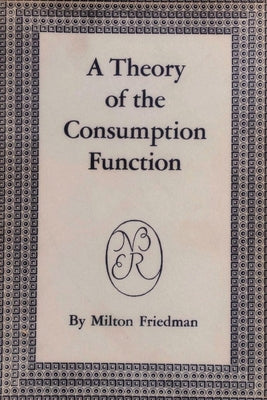Description
What is the exact nature of the consumption function? Can this term be defined so that it will be consistent with empirical evidence and a valid instrument in the hands of future economic researchers and policy makers? In this volume a distinguished American economist presents a new theory of the consumption function, tests it against extensive statistical J material and suggests some of its significant implications.
Central to the new theory is its sharp distinction between two concepts of income, measured income, or that which is recorded for a particular period, and permanent income, a longer-period concept in terms of which consumers decide how much to spend and how much to save. Milton Friedman suggests that the total amount spent on consumption is on the average the same fraction of permanent income, regardless of the size of permanent income. The magnitude of the fraction depends on variables such as interest rate, degree of uncertainty relating to occupation, ratio of wealth to income, family size, and so on.
The hypothesis is shown to be consistent with budget studies and time series data, and some of its far-reaching implications are explored in the final chapter.
Author: Milton Friedman
Publisher: Must Have Books
Published: 03/15/2022
Pages: 254
Binding Type: Paperback
Weight: 0.83lbs
Size: 9.00h x 6.00w x 0.58d
ISBN13: 9781773238319
ISBN10: 1773238310
BISAC Categories:
- Literary Collections | General
- Business & Economics | Economics | Theory
- Business & Economics | Statistics
This title is not returnable

